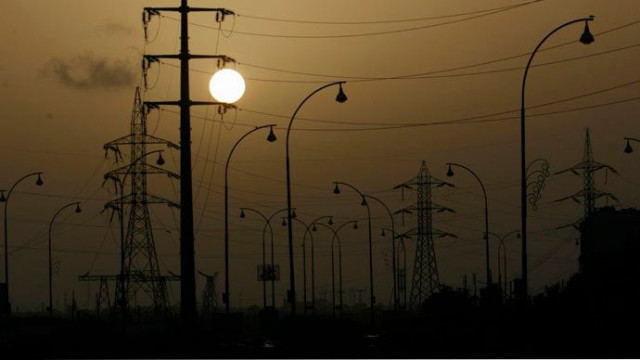‘Skewed policies caused current power mess’
Sartaj Aziz says failure to pay subsidies to IPPs drove country into circular debt

A power shortfall rose to a record 9000 watts in the country. PHOTO: REUTERS
Gas-based power production surges to over 40% of energy mix
Addressing an international workshop on “Options for the Energy Mix; Issues of Sustainability and Costs organized by COMSTECH, former Planning Commission deputy chief Sartaj Aziz said that the country is in a power crisis because it lacks cost-efficient energy production options.
Aziz traced the origins of Pakistan’s energy crisis to a policy of encouraging independent power producers (IPPs) after 1994. He said that these IPPs operated on expensive imported furnace oil.
Moreover, he said the policy meant it shifted Pakistan’s energy mix of equally hydel and thermal reliant to be heavily in favour of the latter. This mix was 70 per cent thermal to 30 per cent hydel in the summer and worsened to 80:20 in winter.
“The cost of power generation went up by 1-16 cents per unit, while the Water and Power Development Authority (WAPDA) was selling electricity at 8-9 cents. The huge subsidy that was payable to the IPPs could not be paid in time leading to a huge circular debt and long hours of load-shedding,” he said.
Aziz then outlined the measures undertaken by the previous government to address the issue by addressing the power mix and enhancing generation capacity, adding power plants which run on cheap, coal — imported and local, liquefied natural gas and local natural gas apart from initiating work on several hydel projects including the Tarbela extension, as well as Dasu and Diamer Bhasha dams.
He said these initiatives have increased power generation capacity from 22,000MW in 2013 to 29,500 MW in 2018.
Power production rises 30% over five years
Earlier, COMSTECH Coordinator General Dr Shaukat Hameed Khan presented a comprehensive and broad-ranging review of the global energy transition, highlighting initiatives to decrease reliance on conventional sources of power by including various renewable sources as part of the energy mix.
He also doused hopes of renewable energy advocates by identifying various real and hidden costs of different renewable technologies and observed that a complete reliance on renewable energy did not appear as a technical or economic possibility in the near future.
“Fossil fuels are not going away anywhere soon and there is no single solution to combat the effects of climate change,” Dr Shaukat said.
Published in The Express Tribune, June 27th, 2018.



















COMMENTS
Comments are moderated and generally will be posted if they are on-topic and not abusive.
For more information, please see our Comments FAQ